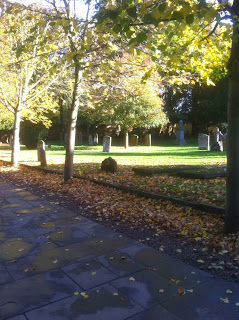I
grew up in an age of conformity, nudged and directed on how and what I should
think by parents, church and school. There was no escape from this, no obvious
escape, and to be fair for a long time I saw no reason to escape: obey and be
happy.
And
then things changed. I became a Marxist; revolutionary in my thinking but not
fully appreciating I was following a different kind of authority. Nor I suppose
did it matter. It was an authority I agreed with. I read comprehensively from
Das Kapitol (I managed three chapters) to the obscurest of tracts and even more
obscure pamphlets. I could smell heretical splinter groups from fifty yards and
treat them with suitable disdain. I was argumentative, pumped up and primed.
Where
am I now?
I’m
back in the late fifties surrounded by new orthodoxies and realising more fully
the original impetus to rebel, this time against a more dangerous and effective
conformity enforced by mainstream media.
The
bottom line is I just don’t like being told what to do or think – although of course
we’re never ‘told’. We are nudged and cajoled along designated patterns of
thought. Sometimes it’s blatantly obvious like politicians going on and on
about ‘Hard working families’ or ‘The right thing to do.’ Other times it’s more
subtle, so much so it becomes part of the wall paper.
So
I’m siding with the ‘naughty’ boys in the class -‘naughty girls,’ if you will.
There are politicians and comedians who, instead of arguing a point or
constructing a good joke, will say ‘Daily Mail’ and elicit a Pavlovian response,
their audience suitably conditioned to snigger or jeer. I’m not championing the
Mail. I’m championing its right to exist and attacking the sheep-dog sneer,
keeping the flock in line. It must be said the Mail uses similar tactics, their
dog whistle being the BBC - and that, too, has a right to exist, though perhaps
not, like the Renaissance
Church, being the only
pulpit in the land.
So,
Murdoch - ‘the dirty digger’, Fox News, UKIP, anti EU, anti immigration, the
death penalty: Bugger the arguments for
and against. The first sniff I get that ‘Teacher’ doesn’t like them, the more
sympathetic I become. Dog whistles alarm me and I don’t care who’s blowing
them. They have all the profundity of wrist-bands: short-cuts to thought
without the thought. They create herds, all those within, sharing the warmth of
like-minded opinion, encouraged to moo at the heretics without.
New
developments in cyber technology are designed to make such ‘whistles’ exclusive
and more strident, raising the walls between the various ‘tribes’. Google and
other companies are designing ever more subtle algorithms that analyse their
individual users’ cultural, social and political preferences, their ‘searches’
and ‘suggestions’ in future geared to and reinforcing individual prejudices.
Soon we’ll have Gated Communities of thought – each one the creature of
corporation, government or interest group. And for the proles (I use the word
in the 1984 sense) we’ll have the Game-ificaction of news, where grazers can
click on politicised games with closed outcomes but encouraging and reinforcing a
particular point of view.
My
problem is I don’t have a particular point of view, other than resisting being
told what I should do. I also struggle not
to tell others what they should do, which is hard because I love argument.
A
grouch without a cause.
Big problem.
Like many, I’m a collection of labels none of
which intellectually cohere: Bolshevik, libertarian, Hobbesian, Christian, cynic,
anarchist, totalitarian, conservative (with a small c). They are labels
covering flux, stretching quantum uncertainty to unforeseen limits.
I don’t know, but don’t tell
me.
Getting
back to algorithms, Face Book is also one of these companies refining their own.
It has one redeeming feature. For all but the narcissist, who wish only to read
what they agree with, its Home Page allows an eclectic and diverse range of
views. Mine is like a wild and overgrown garden and I wouldn’t uproot or prune
a single shoot or bloom. Family and
friends, – new and historic share their prejudices and views (as do I)
Scottish Nationalist, Scouse, rednecks and Christian, ex –students, the vaguely
liberal, socialist, Neo-Cons to the right of Genghis Khan, writers – some whom
shamelessly pimp books, the couldn’t care less – even Canadians. They are all
there. Who would want a single point of view when there are so many? It’s the
difference between the market place and the mall, and it suits me just fine.
The
dream of being super-rich and holding a Home Page party in a fine hotel with good
beer and two or more hog-roasts is an attractive one – the idea of arguing,
sharing and enjoying diversity. A dystopian but probably more realistic outcome
might be everyone finding their own particular table of like-minded souls.
It may be argued that gated communities of
thought are a necessary and predicable reaction to the danger of tyrannical
orthodoxy, Others may argue they are intellectual care homes, and point out
that it was a similar withdrawal from polity that contributed to the decline of
Roman Britain.
I don’t know.






















































